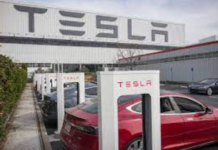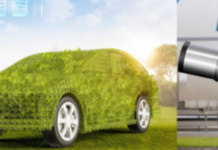New Delhi– Despite Tesla CEO Elon Musk still not entertaining a bevy of Indian ministers to manufacture its electric cars in the country, the government on Tuesday said it will soon bring an EV battery swapping policy and interoperability standards will be formulated for EV automakers — a move that has been hailed by the industry players.
Finance Minister Nirmala Sitharaman said the private sector will be encouraged to develop sustainable and innovative business models for ‘Battery or Energy as a Service’.
“This will improve efficiency in the EV ecosystem. The government will also promote a shift to use of public transport in urban areas complemented by clean tech and governance solutions, special mobility zones with zero fossil-fuel policy, and EV vehicles,” she elaborated during her Union Budget 2022-23 speech.
Electric vehicle battery swapping is a place at which an electric vehicle’s discharged battery or battery pack can be immediately swapped for a fully charged one, eliminating the delay involved in waiting for a vehicle’s battery to charge.
Vivekananda Hallekere, CEO and Co-Founder, Bounce, told IANS that the government and policymakers have recognised battery swapping as the most effective solution to accelerate EV adoption in India.
“It addresses range anxiety and hesitancy in adoption as well as considering the pragmatic aspects of setting up charging infrastructure — for instance, space constraints in urban areas for dedicated charging stations. We believe this move can enable affordable and clean mobility at scale,” Hallekere said.
The policy will be critical in enabling a well-established EV infrastructure across the country while instilling customer confidence in riding EVs on Indian roads.
“More importantly, this will boost EV adoption in the last-mile delivery space, where time constraints make instant battery swapping more viable than charging the existing battery,” said Jeetender Sharma, MD and Founder of Okinawa Autotech.
Pune-based startup BatteryPool, founded by Ashwin Shankar, is solving challenges around battery swapping.
“We believe battery swapping is the right approach for charging electric two and three wheelers, especially in urban areas. Now, what would be interesting to see are the interoperability standards that have been laid out by the Government and how the industry conforms to these standards,” he said.
The global electric vehicle battery swapping market was valued at $100.1 million in 2020, and is projected to reach $852.6 million by 2030, registering a CAGR of 24.4 per cent, according to Allied Market Research. (IANS)







